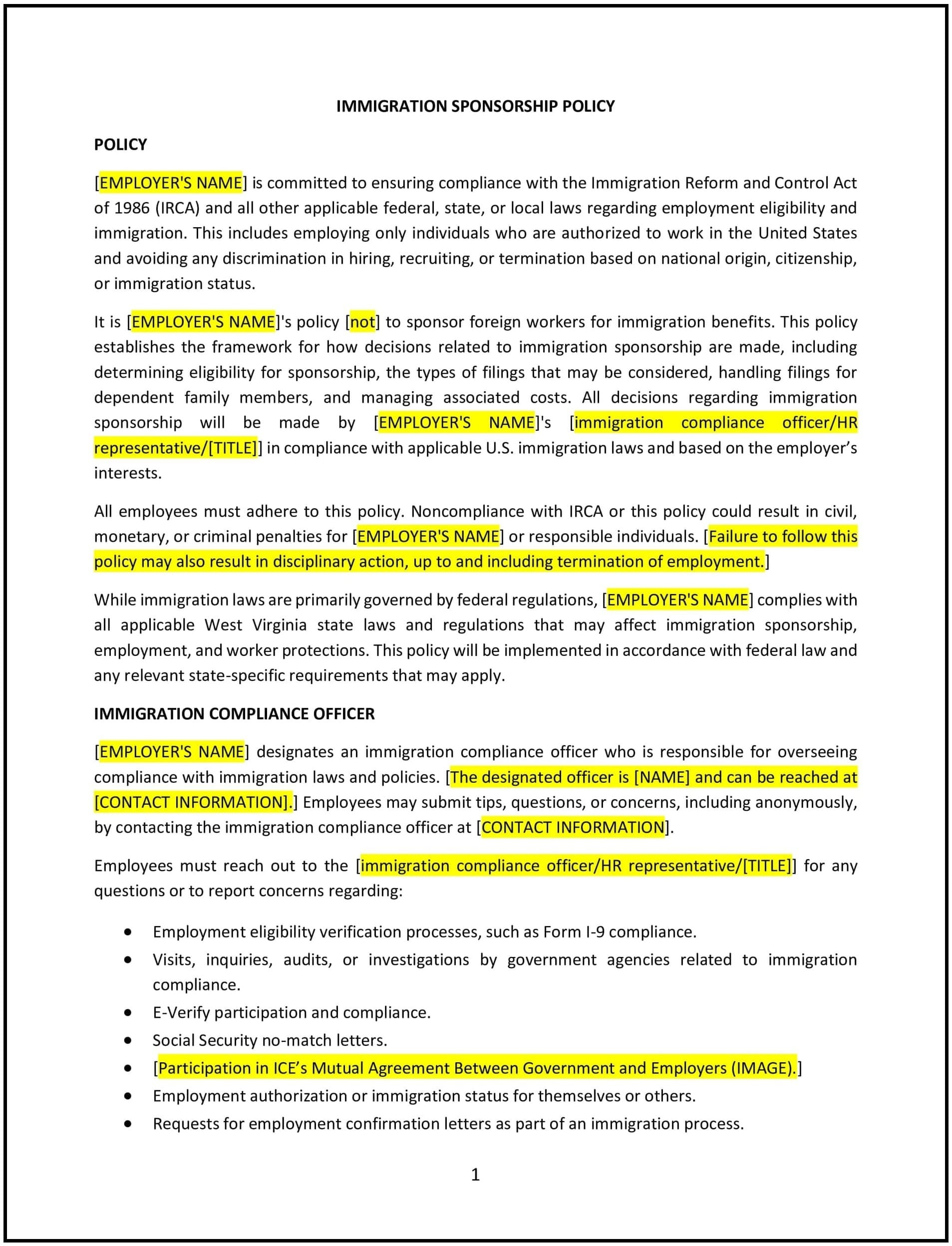Immigration sponsorship policy (West Virginia): Free template
Got contracts to review? While you're here for policies, let Cobrief make contract review effortless—start your free review now.

Customize this template for free
Immigration sponsorship policy (West Virginia)
In West Virginia, an immigration sponsorship policy outlines the organization’s approach to supporting employees or job candidates who require sponsorship for work authorization or residency in the United States. This policy ensures transparency, improves compliance with federal immigration laws, and consistency in handling sponsorship requests.
The policy defines eligibility criteria, procedures for requesting sponsorship, and responsibilities of both the employer and the employee throughout the sponsorship process.
How to use this immigration sponsorship policy (West Virginia)
- Define eligibility: Specify the criteria for employees or candidates to qualify for immigration sponsorship, such as alignment with business needs or critical skill requirements.
- Outline the sponsorship process: Provide details on the application process, required documentation, and timelines for filing petitions.
- Set cost responsibilities: Clarify which expenses the organization will cover (e.g., legal fees, filing costs) and any costs the employee may need to bear.
- Ensure compliance: Align the policy with federal laws, such as the Immigration and Nationality Act (INA), to avoid legal risks and ensure proper documentation.
- Communicate expectations: Clearly state the responsibilities of the employee, such as providing accurate information and maintaining their immigration status.
Benefits of using an immigration sponsorship policy (West Virginia)
- Attracts top talent: Helps businesses recruit and retain highly skilled employees who require work authorization.
- Supports compliance: Enhances compliance with federal immigration laws and minimizes risks of penalties or audits.
- Promotes consistency: Establishes a clear framework for managing sponsorship requests, reducing bias or favoritism.
- Enhances transparency: Provides employees and candidates with clear information about the sponsorship process and expectations.
- Aligns with workforce needs: Enables businesses to address talent shortages and support long-term growth strategies.
Tips for using an immigration sponsorship policy (West Virginia)
- Communicate clearly: Share the policy with employees and job candidates early in the hiring process to set expectations.
- Use legal expertise: Work with qualified immigration attorneys to ensure petitions and filings comply with federal regulations.
- Track visa deadlines: Maintain accurate records of sponsored employees’ visa timelines to ensure timely renewals or adjustments.
- Provide ongoing support: Offer resources or assistance to help sponsored employees navigate their immigration requirements.
- Review regularly: Update the policy to reflect changes in immigration laws, federal regulations, or organizational needs.